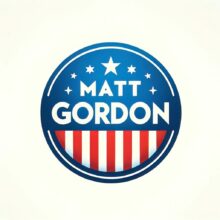Here’s a quick update on my 2020 reading projects…
It’s been my intention to provide a mid-year check-in, but with one client leaving my company’s roster, one client coming back on it, and with signing a couple of new accounts, it’s just been too fast-paced lately. Add to that a couple of long-distance COVID-era trips this summer (Flying: better. Driving: not so much), and I’ve been doing good to just keep up with the reading, let alone blog about it.
As you may be able to deduce from my Goodreads profile, I’m ahead of schedule to read over 50 books this year, including 38 Shakespeare plays. I’m pretty proud of that, although it’s quite easy if you have the discipline to read a little every day.
My Bible reading has changed somewhat from the original plan for 2020, and I’m doing more in-depth study than just daily devotional reading. This change was facilitated to no small degree by my long-debated purchase of the Logos Bible Study software. It has proven to be a great tool, and I’ll review it when I feel like I have a better grasp of its many great features.
My Lincoln reading has followed its planned course, with one exception: I finished the first volume of Michael Burlingame’s excellent Lincoln biography on February 3, 2020. The book ends with Lincoln’s train pulling out of the station in Springfield, Illinois, to take the President-Elect to Washington D.C.
That seemed like the ideal prelude to reading Ted Widmer’s wonderful book, “Lincoln on the Verge: Thirteen Days to Washington.” It’s all about that train trip and the political and social intrigue that surrounded it. This has been one of the most satisfying books I’ve read in quite some time.
I took a little time off from Lincoln but I am excited to read the second volume of the Burlingame biography this fall.
Currently, I’m reading “With The Old Breed,” a WWII memoir penned by Marine infantryman Eugene B. Sledge. I’d like to say that I’m enjoying this book, but it’s not the type of book to be enjoyed. It’s the kind of book that consumes you more than you consume it. Why do I say that? It’s mainly due to “Sledgehammer’s” gritty honesty about what it’s really like to be at war. It’s not like what you see in the movies. The author manages to give you an intimate account of multi-day battles on two islands in the Pacific Theater without either pulling punches or glorifying/sensationalizing the experience. It’s eye-opening, inspiring, and horrifying all at once. Thanks to my friend Dominic Cummins for recommending it.
I’m also reading “Propaganda,” by Edward Bernays. Although Bernays is considered the “father of modern propaganda,” the word and technique have been around since the year 1620. It was only in the aftermath of WWI that the term has come to carry such nefarious baggage. This particular book attempts to mitigate some of the damage in the form of somewhat of an apologetic of the art. As history shows, it is a battle that Bernays lost.
It’s certainly interesting to study propaganda (the book and the communication style) in an election year. And that’s all I’m going to say about that.
